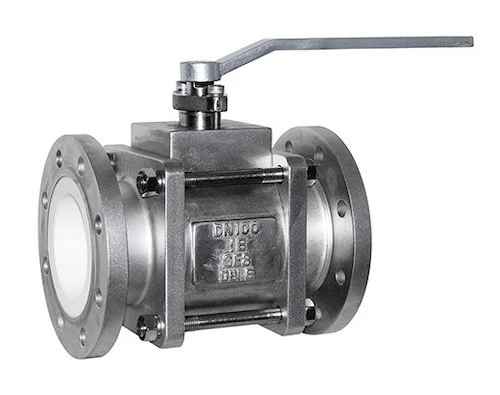Ceramic ball valves are made of high-performance ceramics, such as aluminum oxide and silicon nitride, which have excellent corrosion resistance and wear resistance. These materials can not only cope with corrosive media such as strong acids and alkalis, but also perform well in high-temperature and high-pressure environments, making ceramic ball valves an ideal choice for handling harsh working conditions.

Characteristics
1. Excellent sealing performance: The ceramic ball valve adopts precision machining technology to ensure excellent sealing performance, effectively prevent leakages of media, and improve system safety.
2. Good wear-resistance: Adopting a hard ceramic ball and valve seat, greatly extending the service life of the valve and reducing maintenance costs.
3. Intelligent control: Some ceramic ball valves are integrated with intelligent control systems, which can achieve remote monitoring, automated adjustment, improve production efficiency, and reduce the need for manual intervention.
4. The choice for sustainable development: Due to the environmental characteristics of ceramic, ceramic ball valves are considered a choice that conforms to the concept of sustainable development. Its long lifespan and low maintenance cost contribute to reducing resource consumption and promoting the development of industrial valves towards a more environmentally friendly direction.
Ceramic ball valves have shown excellent application potential in multiple industries. In the field of petrochemicals, ceramic ball valves can be used for controlling corrosive media in fine chemical production processes; in the energy industry, their high-temperature resistance makes them an important component of thermal and nuclear power plants; ceramic ball valves are also widely used in liquid processing and transportation in the pharmaceutical and food industries. As one of the innovations in the field of industrial valves, ceramic ball valves not only improve the efficiency and safety of industrial processes, but also contribute to sustainable development. In the future, with the continuous maturity of technology, we have reasons to believe that ceramic ball valves will continue to play a key role in various industries and become a new benchmark in the industrial valve field.
